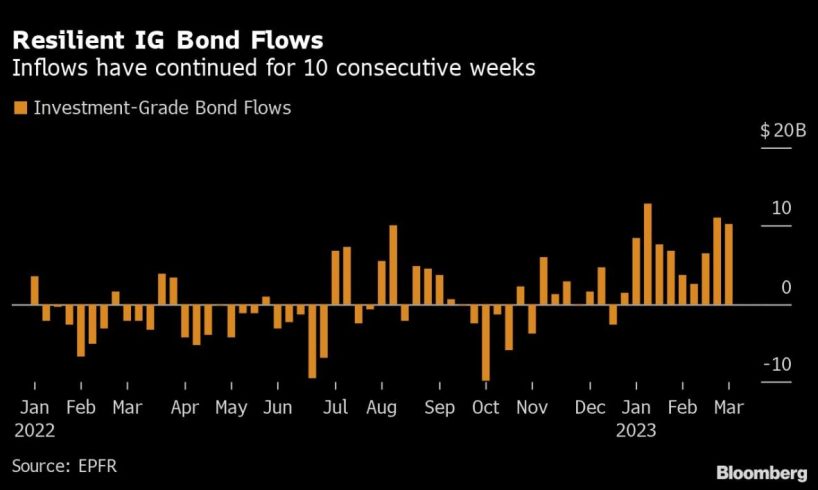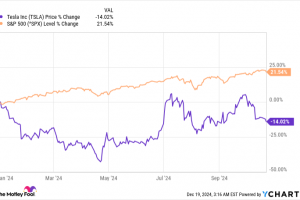
(Bloomberg) — As equities take more pummeling, more traders are hiding out in credit markets.
Most Read from Bloomberg
They’re finding refuge in top-quality bonds, especially short-term securities. So far this year, global investment-grade credit funds have absorbed almost $70 billion, making it the biggest inflow for this part of the year since EPFR Global started tracking the data in 2017.
“Why would you subject yourself to this very data dependent, binary, weekly equity environment with rates repricing, when you can sleep at night sitting in Treasury bills or short-duration investment-grade credit,” said Charlie McElligott, cross-asset macro strategist at Nomura Securities International.
He offered his own anecdotal evidence, saying he knows equity fund managers that have stocked their portfolios with between 25% and 50% of short-term bonds from blue-chip companies.
Cash Is Beating 60/40 Portfolios for First Time Since 2001
Against a backdrop of high inflation and a Federal Reserve determined to keep raising rates, asset allocators face the challenge of picking the least-bad option. Stocks have taken a beating recently, bond prices are under pressure from Jerome Powell’s hawkish warnings and the value of cash is being eroded.
“In the near-term, cash and investment-grade credit are the best way to be positioned,” said Thomas Hempell, head of macro and market research at Generali Investments. “Although it will not be a stellar performance.”
The S&P 500 tumbled on Tuesday, bringing losses to 4.6% from a peak in early February, after Powell said interest rates will probably need to be higher than previously expected. US equity funds have seen four weeks of outflows totaling $10.6 billion, according to EPFR data.
Story continues
The risk for investors shifting to credit is that they’ll be locked into securities with a long time horizon, leaving them exposed to losses as interest rates climb. And for all the optimism about high-grade bonds, the total return is less than 1% this year, based on a Bloomberg Index. The average note in the benchmark yields…
..






